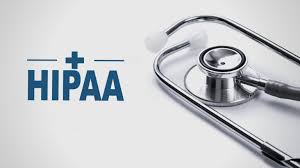
Patient Privacy Management: Ensuring Confidentiality and Trust in Healthcare
Privacy is a cornerstone of quality healthcare, safeguarding patient trust and ensuring the confidentiality of personal health information. In our digital era, maintaining privacy poses challenges, with technology advancements and regulatory complexities. This post delves into why healthcare privacy matters and offers insights into overcoming the hurdles to protect this fundamental human right.

Privacy is a fundamental human right that is essential to the provision of quality health care. Patients have the right to expect that their personal health information will be kept confidential and secure. However, in today’s digital age, protecting patient privacy has become increasingly challenging.
The Importance of Privacy in Health Care
This is critical to building trust between patients and health care providers. Patients are more likely to share sensitive information about their health when they trust that their information will be kept confidential. This, in turn, enables health care providers to provide more accurate diagnoses and develop more effective treatment plans.
It is also essential for protecting patients from discrimination. If personal health information is disclosed without consent, patients may face discrimination from employers, insurers, or even family members. This can have serious consequences for their health and well-being.
The Challenges
Protecting privacy in health care has become increasingly challenging due to advances in technology. Electronic health records, telemedicine, and mobile health apps have made it easier for patients to access health care services, but they have also created new opportunities for data breaches and cyber attacks.
In addition, health care providers must comply with complex regulations such as the Health Insurance Portability and Accountability Act (HIPAA). HIPAA requires health care providers to implement administrative, physical, and technical safeguards to protect patient information. However, compliance with these regulations can be difficult and time-consuming.
How to Protect Privacy in Health Care
Despite the challenges, there are steps that health care providers can take to protect patient confidentiality. These include:
– Implementing strong security measures such as firewalls, encryption, and multi-factor authentication
– Providing regular training to staff on privacy policies and procedures
– Conducting regular risk assessments to identify vulnerabilities and address them promptly
– Ensuring that third-party vendors who handle patient information also comply with confidentiality regulations
Patients can also take steps to protect their own confidentiality by:
– Reviewing their medical records regularly to ensure that they are accurate and up-to-date
– Asking their health care provider about their privacy policies and procedures
– Being cautious about sharing personal health information online or through mobile apps
– Reporting any suspected breaches of confidentiality to their health care provider or regulatory authorities
In conclusion, privacy is essential to the provision of quality health care. Protecting patient requires a concerted effort from both health care providers and patients themselves. By implementing strong security measures and complying with confidentiality regulations, health care providers can help ensure that patient information remains confidential and secure. Patients can also take steps to protect their own privacy by being cautious about sharing personal information and reporting any suspected breaches of privacy.
Disclaimer: The information provided in this content is for general informational purposes only. It is not intended as medical or healthcare advice, diagnosis, or treatment. Always seek the advice of a qualified healthcare professional with any questions you may have regarding a medical condition or healthcare decisions.


